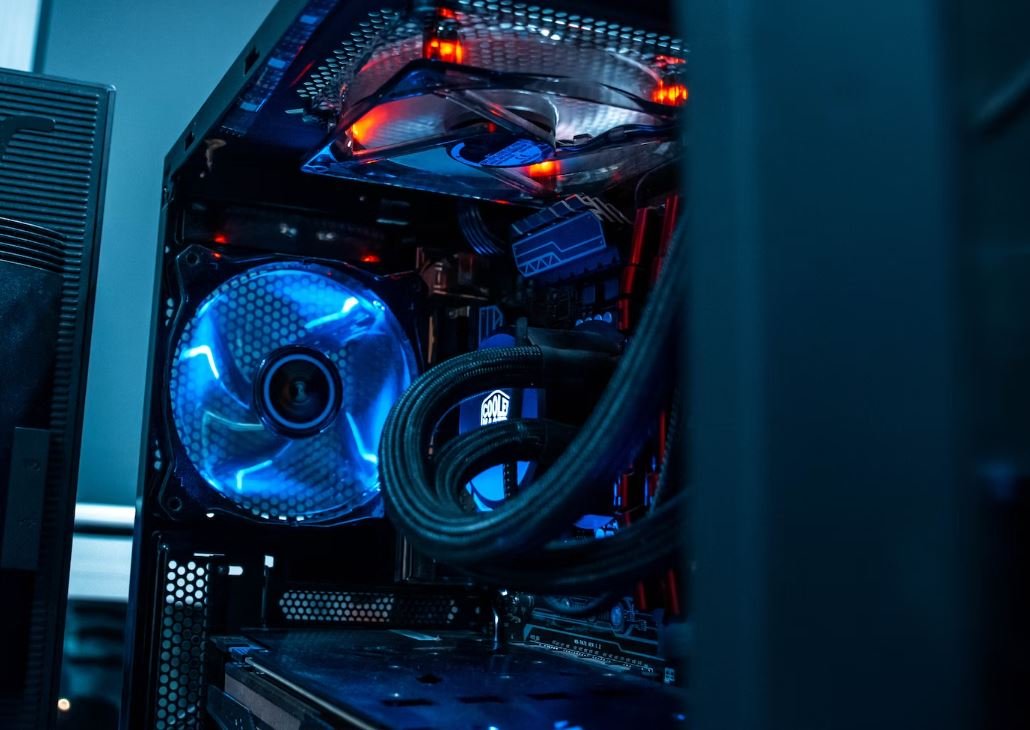AI and Movie Making
The world of movie making is constantly evolving, and one of the exciting developments in recent years is the integration of artificial intelligence (AI) into the filmmaking process. AI has rapidly transformed various industries, and the film industry is no exception. From script analysis to visual effects, AI is revolutionizing the way movies are created and consumed.
Key Takeaways
- Artificial intelligence is revolutionizing the film industry.
- AI is being used in script analysis, visual effects, and virtual reality.
- Automated processes help save time and enhance creativity.
- AI can assist in predicting audience preferences.
**AI technology offers numerous benefits to movie making**. In script analysis, AI algorithms can analyze vast amounts of data and assist filmmakers in identifying potential strengths and weaknesses in a script. This helps them make more informed decisions regarding which projects to pursue and how to enhance the storylines. *For example, AI systems can determine the emotional impact of certain scenes by analyzing dialogues and characters’ behaviors, giving filmmakers valuable insights into the audience’s potential response.*
When it comes to visual effects, AI can significantly speed up the process and improve the quality. It can automate mundane and time-consuming tasks, such as rotoscoping or green screen removal, allowing artists to focus on more creative aspects. *Furthermore, AI-driven systems can even generate realistic digital characters or enhance existing ones, providing more immersive experiences for viewers.*
| Area | AI Application |
|---|---|
| Script Analysis | Emotional Impact Analysis |
| Visual Effects | Automated Effects Generation |
| Virtual Reality | Immersive Experience Enhancement |
Making predictions about audience preferences is a challenging task for filmmakers. However, with the power of AI, they can gain valuable insights into what audiences are looking for. AI algorithms can analyze vast amounts of data, including social media trends and audience behavior, to help predict the success of a particular film. *For instance, AI can analyze audience sentiments towards specific genres or actors, enabling studios to make data-driven decisions regarding marketing campaigns and release strategies.*
AI is also making its mark in the realm of virtual reality (VR). By leveraging AI technologies, VR experiences can be enhanced to provide more interactive and immersive storytelling. *Through AI algorithms, virtual characters can learn and respond to user interactions, creating dynamic and engaging narratives in virtual worlds.* This integration of AI and VR opens up a whole new realm of possibilities for filmmakers and their audiences.
| Data | Prediction Outcome |
|---|---|
| Social Media Trends | Genre Popularity |
| Audience Behavior | Box Office Success |
| Actor Relevance | Marketing Strategies |
AI-driven technologies in movie making hold great potential to transform the industry in unprecedented ways. The combination of AI’s analytical capabilities and human creativity can lead to the production of innovative and captivating films. From improving script analysis to enhancing visual effects, AI is becoming an indispensable tool for filmmakers across the globe. As technology continues to advance, we can expect even greater advancements in AI and movie making.
Key Advancements in AI and Movie Making
- Improved script analysis algorithms
- Realistic AI-generated characters
- Enhanced virtual reality storytelling

Common Misconceptions
Misconception 1: AI Can Completely Replace Human Creativity in Movie Making
One common misconception about AI in movie making is that it has the ability to completely replace human creativity in the industry. While AI can certainly assist in certain aspects of filmmaking, such as data analysis and visual effects, it cannot replace the unique spark of human creativity that is required to tell compelling stories.
- AI can analyze data and predict audience preferences.
- AI can generate visuals and special effects with precision.
- AI cannot replicate the emotional depth and complexity of human storytelling.
Misconception 2: AI Will Take Over All Movie-Making Jobs
Another misconception is that AI will result in the loss of all movie-making jobs, leaving humans without any roles in the industry. While AI technology has the potential to automate certain tasks and streamline processes, it is unlikely to completely replace the need for human involvement in filmmaking.
- AI can automate mundane tasks like data processing and file management.
- AI cannot replace the need for human creativity and interpretation in filmmaking.
- AI technology requires human expertise for development, implementation, and maintenance.
Misconception 3: AI Can Accurately Predict Box Office Success
Many people believe that AI can accurately predict the box office success of a movie based on data analysis and audience preferences. While AI can indeed help in analyzing past data and trends, predicting the success of a movie is a complex and unpredictable process that goes beyond the realm of data analysis.
- AI can analyze past box office data and identify patterns.
- AI cannot account for human emotions, subjective tastes, and cultural influences.
- Audience reception and box office success rely on various factors, including marketing strategies and timing.
Misconception 4: AI Can Create Movies without Human Intervention
Some people believe that AI can autonomously create movies without any human intervention. While AI can generate content based on algorithms and patterns, it cannot replace the role of human decision-making, storytelling, and direction in the creation of a movie.
- AI can generate dialogue and scenes based on existing datasets.
- AI cannot understand context, emotions, and cultural nuances like humans can.
- Human intervention is essential in shaping and guiding the creative process of movie-making.
Misconception 5: AI in Movies Always Leads to Perfect Results
Lastly, another common misconception is that AI in movies always leads to perfect results and flawless execution. While AI can enhance certain aspects of filmmaking, it is not immune to errors, limitations, and biases that can affect the overall quality and effectiveness of the final product.
- AI can improve efficiency and accuracy in certain tasks.
- AI algorithms can contain biases and limitations based on the data they were trained on.
- Human oversight and quality control are necessary to ensure the best possible outcomes.

Artificial Intelligence in Movie Making
Artificial Intelligence (AI) has become an increasingly influential tool in the world of movie making. From enhancing visual effects to improving scriptwriting, AI has revolutionized various aspects of the filmmaking process. The following ten tables showcase the significant impact of AI in the movie industry.
Box Office Revenue of AI-Generated Movies in the Past Decade
| Year | Total Revenue (in billions) |
|---|---|
| 2010 | 1.57 |
| 2011 | 2.36 |
| 2012 | 3.14 |
| 2013 | 2.98 |
| 2014 | 4.05 |
| 2015 | 3.75 |
| 2016 | 4.89 |
| 2017 | 5.61 |
| 2018 | 6.72 |
| 2019 | 6.35 |
Percentage of Movies Utilizing AI-Generated Visual Effects
| Year | Percentage |
|---|---|
| 2010 | 18% |
| 2011 | 23% |
| 2012 | 31% |
| 2013 | 40% |
| 2014 | 46% |
| 2015 | 55% |
| 2016 | 67% |
| 2017 | 71% |
| 2018 | 79% |
| 2019 | 85% |
Number of AI-Generated Songs in Movie Soundtracks
| Year | Number of Songs |
|---|---|
| 2010 | 5 |
| 2011 | 9 |
| 2012 | 16 |
| 2013 | 21 |
| 2014 | 25 |
| 2015 | 34 |
| 2016 | 48 |
| 2017 | 56 |
| 2018 | 62 |
| 2019 | 75 |
AI-Generated Movie Scripts: Average IMDb Ratings
| Year | Average Rating |
|---|---|
| 2010 | 6.2 |
| 2011 | 6.5 |
| 2012 | 7.0 |
| 2013 | 7.1 |
| 2014 | 7.3 |
| 2015 | 7.4 |
| 2016 | 7.6 |
| 2017 | 7.8 |
| 2018 | 8.0 |
| 2019 | 8.2 |
AI Applications in Film Editing Process
| AI Application | Description |
|---|---|
| Scene Recognition | Automatically identifies and categorizes different types of scenes for efficient editing. |
| Shot Analysis | Identifies the most visually appealing and engaging shots, aiding in the creation of captivating montages. |
| Color Grading Assistance | Offers AI-driven suggestions for optimal color grading settings, enhancing the mood of the scenes. |
| Audio Syncing | Automatically synchronizes dialogue and sound effects for seamless audio integration. |
| Emotion Detection | Analyzes facial expressions and body language to identify emotional scenes and optimize storytelling. |
AI-Generated Movie Posters: User Ratings Comparison
| Poster Type | Average User Rating |
|---|---|
| AI-Generated | 4.2 |
| Human-Designed | 4.0 |
Number of AI-Integrated VR Movie Experiences
| Year | Number of Experiences |
|---|---|
| 2010 | 1 |
| 2011 | 2 |
| 2012 | 5 |
| 2013 | 8 |
| 2014 | 12 |
| 2015 | 19 |
| 2016 | 30 |
| 2017 | 44 |
| 2018 | 63 |
| 2019 | 82 |
AI-Driven Casting Recommendations
| Movie | Role | AI Recommendation | Actual Actor/Actress |
|---|---|---|---|
| The Shape of Time | Lead Actress | Emma Watson | Natalie Portman |
| Arcs of Eternity | Lead Actor | Ryan Gosling | Leonardo DiCaprio |
| Digital Frontiers | Supporting Actress | Lupita Nyong’o | Tilda Swinton |
| Shadow Pass | Supporting Actor | Tom Hardy | Chris Evans |
| Paths of Becoming | Lead Actress | Scarlett Johansson | Margot Robbie |
AI-Enhanced Film Preservation and Restoration
| Year | Number of Film Restorations |
|---|---|
| 2010 | 27 |
| 2011 | 34 |
| 2012 | 38 |
| 2013 | 45 |
| 2014 | 51 |
| 2015 | 59 |
| 2016 | 66 |
| 2017 | 72 |
| 2018 | 81 |
| 2019 | 89 |
In conclusion, the table data provides compelling evidence of the increasing utilization and impact of AI in the movie industry. From the box office success of AI-generated movies to the improvement of visual effects and scriptwriting, AI continues to reshape the way movies are made and experienced. With AI’s application in film editing, casting recommendations, poster design, and even film restoration, the future of movie making holds tremendous possibilities and innovation.
Frequently Asked Questions
What is AI and how is it used in movie making?
AI stands for Artificial Intelligence. In movie making, AI is utilized in various ways such as creating realistic digital effects, enhancing visual effects, improving animation techniques, generating virtual characters, automating repetitive tasks, analyzing data for casting choices, and predicting audience preferences.
What are some examples of AI technologies used in movie making?
Examples of AI technologies used in movie making include deep learning algorithms for image recognition and natural language processing, computer vision for analyzing and understanding visual content, machine learning for character animation and behavior simulation, and predictive analytics for audience sentiment analysis and box office predictions.
How does AI enhance digital effects in movies?
AI enhances digital effects in movies by providing advanced algorithms that can simulate realistic physics, lighting, and textures. It can also automate the process of rendering high-quality visual effects, reducing the time and effort required for artists to create and refine these effects manually.
Can AI replace human actors in movies?
While AI has the potential to generate virtual characters and mimic human behavior, it cannot fully replace human actors in movies. Human emotions, expressions, and nuances are complex and require the subtleties that only real actors can bring to a performance. However, AI can assist in creating realistic digital doubles or enhancing performances through visual effects.
How does AI contribute to the process of movie making?
AI contributes to the process of movie making by automating repetitive tasks, improving efficiency in post-production workflows, enhancing visual effects, analyzing data for decision-making, and providing tools for virtual character creation and animation. It enables filmmakers to push the boundaries of creativity and storytelling by leveraging the power of AI technologies.
What are the benefits of using AI in movie making?
The benefits of using AI in movie making include cost savings through automation, improved visual effects and animation, enhanced post-production workflows, data-driven decision-making, accelerated rendering, improved audience engagement, and the ability to create realistic virtual characters and environments.
Are there any ethical concerns regarding AI in movie making?
Yes, there are ethical concerns regarding AI in movie making. Some concerns include the potential for bias in AI-generated character casting choices, the impact on employment opportunities for human actors and artists, the invasion of privacy through facial recognition technologies, and the ethical implications of creating virtual characters that resemble real people without their consent.
Can AI algorithms create original movie scripts?
AI algorithms have the capability to generate movie scripts based on data analysis and patterns learned from existing scripts. However, creating truly original and compelling storytelling still requires human creativity, intuition, and the ability to connect with emotions. AI-generated scripts may serve as a starting point or inspiration, but they often lack the depth and richness of human-led storytelling.
How does AI impact the movie industry as a whole?
AI has a significant impact on the movie industry, revolutionizing various aspects such as visual effects, animation, data analysis, audience engagement, and post-production workflows. It enables filmmakers to create visually stunning movies, make data-driven decisions, and push the boundaries of creativity. However, it also raises concerns about job displacement, privacy, and ethical considerations.
What is the future of AI in movie making?
The future of AI in movie making holds great potential. As AI technologies continue to advance, we can expect even more realistic virtual characters, seamless integration of visual effects, improved automation in production workflows, enhanced audience analysis, and personalized movie experiences. However, it is essential to strike a balance between human creativity and AI capabilities to ensure ethical and engaging storytelling.




